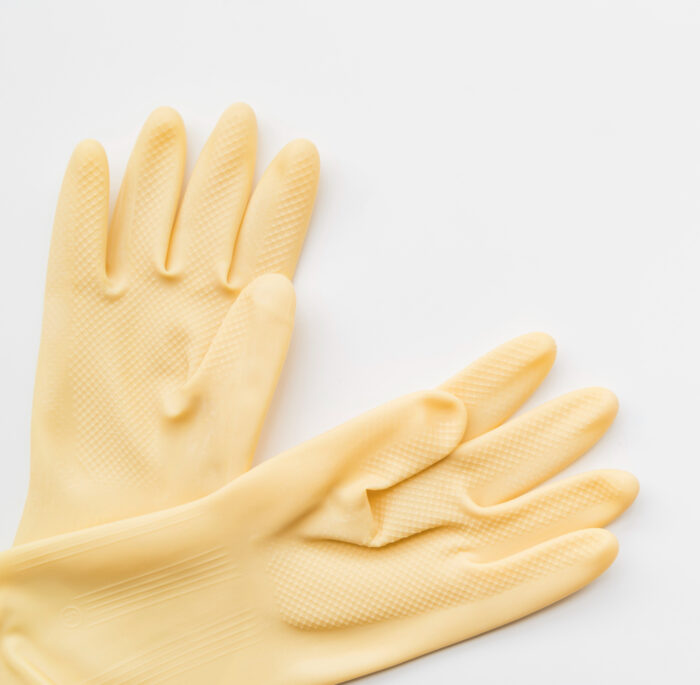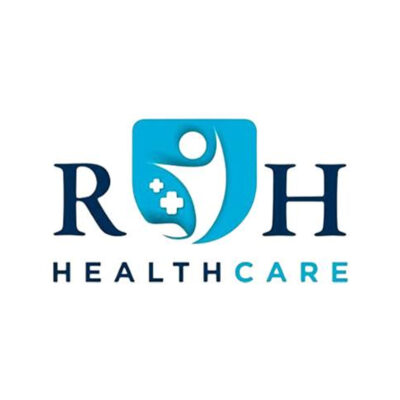Are vinyl hand gloves safe for medical use?

When it comes to safety, hygiene, and protection in medical environments, disposable gloves play a crucial role. Among the various types available in the market—latex, nitrile, polyethylene—vinyl gloves have carved a place for themselves due to their affordability and usability. But one important question still arises—are vinyl hand gloves truly safe for medical use?
This question holds particular significance for healthcare professionals, hospitals, diagnostic labs, and clinics that handle tasks requiring infection control and contact with potentially hazardous materials. Vinyl gloves are synthetic and latex-free, making them a preferred choice for users with latex allergies. However, their suitability in all medical scenarios requires a detailed understanding of their structure, limitations, and proper usage.
As a vinyl hand gloves wholesaler in Gandhinagar and a trusted vinyl hand gloves wholesaler in Gujarat, RH Healthcare has years of experience supplying high-quality gloves to medical institutions. With our deep knowledge of the Indian healthcare environment and firsthand insights into glove performance, we will walk you through every aspect of vinyl gloves—composition, safety, strength, advantages, disadvantages, and appropriate usage contexts—so you can make a confident and well-informed choice.
The Composition and Functionality of Vinyl Gloves
Vinyl gloves are made from polyvinyl chloride (PVC) combined with a plasticizer to enhance flexibility. Unlike latex gloves that are made from natural rubber or nitrile gloves derived from synthetic rubber compounds, vinyl gloves have a polymer-based composition that offers both affordability and latex-free safety.
Their smooth texture and low-tactile sensitivity make them suitable for many light-duty tasks, particularly in non-hazardous environments. Vinyl gloves are also non-reactive to most cleaning agents and provide a barrier against contaminants in a variety of healthcare scenarios.
Vinyl gloves are commonly available in powdered and powder-free versions, with the powder-free option often favored in medical settings to minimize allergic reactions and contamination risks.
Safety Parameters in Medical Settings
When assessing glove safety in medical settings, several parameters are considered:
1. Barrier Protection – Can the glove block pathogens, chemicals, and bodily fluids effectively?
2. Durability—Is it tear-resistant during extended wear?
3. Elasticity and Fit—Does the glove offer a snug fit without compromising hand movement?
4. Chemical Resistance—Does it withstand common disinfectants, alcohols, and sanitizers?
5. Biocompatibility—Is it safe for prolonged contact with human skin and tissue?
Vinyl gloves pass most of these safety benchmarks under low-risk to moderate-risk conditions. They offer good barrier protection during basic clinical procedures like physical examinations, noninvasive patient care, or handling nonsharp medical equipment.
However, vinyl gloves may not be suitable in high-risk surgical or invasive environments where there is a significant chance of exposure to blood-borne pathogens or body fluids. Their molecular structure is looser compared to nitrile or latex, which can result in microscopic gaps forming during use, especially when under stress or stretched for long durations.
Where Vinyl Gloves Excel in Medical Use
Although vinyl gloves are not the top choice for high-risk operations, they remain highly effective for:
- Routine medical checkups
- Blood pressure checks
- First-aid procedures
- Examination of patients without open wounds
- Disinfecting and sanitizing surfaces
- Handling medications and medical records
- Dental front-office work
- Light cleaning within medical offices
These gloves are cost-effective, come in bulk packaging, and can be easily disposed of after a single use, helping control cross-contamination.
Potential Concerns and Limitations
Like any product, vinyl gloves come with limitations that need to be understood and acknowledged in a medical context:
1. Weaker Chemical Resistance
Vinyl gloves are not the best barrier against strong chemicals, solvents, and corrosive agents. They can degrade quicker than nitrile gloves when exposed to alcohol-based disinfectants.
2. Limited Flexibility
They tend to have lower elasticity, which might result in a loose or wrinkled fit. This makes them less ideal for precise movements or sensitive clinical procedures that require better tactile response.
3. Higher Risk of Tear
Vinyl gloves can be more prone to tears or punctures when subjected to stress, friction, or stretching. If a tear occurs, the glove’s protective function is instantly compromised.
4. Not Suitable for High-Infection Areas
In operating rooms or during contact with infectious body fluids, vinyl gloves may not provide the same level of safety as nitrile or latex gloves.
FDA and Medical Standards Compliance
Despite their limitations, vinyl gloves used in the medical field must comply with several regulations to be considered safe:
- FDA 510(k) Certification (for U.S. market)
- EN 455 compliance (Europe)
- ISO 13485 standard for quality assurance
- ASTM D5250 (standard for PVC gloves)
RH Healthcare ensures that all vinyl gloves we supply are produced under strict quality control and meet recognized global benchmarks. Medical professionals purchasing from us can rest assured that these gloves are tested for leakage, strength, and biological compatibility before they reach your facility.
Allergies and Skin Compatibility
One of the most distinct advantages vinyl gloves offer is zero latex protein content, making them a go-to alternative for latex-sensitive individuals. Latex allergy can cause anything from mild rashes to serious respiratory issues, especially in frequent glove users like nurses or lab technicians.
Vinyl gloves, being hypoallergenic, help eliminate these concerns altogether. Although they may contain plasticizers like DEHP (Di(2-ethylhexyl) phthalate), the risk of skin reaction is minimal if gloves are not used for extended periods.
If allergies are a concern, DEHP-free vinyl gloves are also available and widely recommended.
Comparing Vinyl Gloves with Other Medical Gloves
Let us briefly contrast vinyl gloves with other commonly used glove types to provide a broader perspective:
Latex Gloves
- Pros: High sensitivity, elasticity, comfort
- Cons: Allergenic, costly
- Usage: Surgeries, invasive procedures
Nitrile Gloves
- Pros: Durable, chemical-resistant, tight-fitting
- Cons: Slightly expensive
- Usage: Lab work, high-risk medical situations
Polyethylene Gloves
- Pros: Very inexpensive, easy to wear
- Cons: Loose fit, minimal barrier
- Usage: Food handling, low-risk tasks
Vinyl Gloves
- Pros: Affordable, latex-free, readily available
- Cons: Low durability under stress, less tactile
- Usage: General examinations, surface sanitation, clerical healthcare work
Environmental and Disposal Considerations
Vinyl gloves are made from PVC, which is non-biodegradable. Therefore, proper disposal practices are essential to minimize their environmental impact. Medical facilities are required to follow biohazard waste protocols that ensure:
- Gloves are never flushed or discarded with general waste
- Contaminated gloves are disposed of in color-coded medical bins
- Incineration or certified waste disposal systems are used to destroy used gloves safely
RH Healthcare also promotes bulk delivery with minimal packaging to reduce plastic waste and environmental burden.
Best Practices for Using Vinyl Gloves in Healthcare
Proper glove usage enhances safety and longevity. Here are a few practices medical staff should always follow:
- Always wash hands before and after glove usage
- Choose the correct glove size to ensure fit and comfort
- Inspect gloves before each use for punctures or visible damage
- Never reuse vinyl gloves
- Discard gloves immediately after each patient interaction
- Do not touch non-sterile surfaces with gloved hands
These simple measures ensure that the gloves perform at their best during use and maintain hygiene standards.
Who Should Use Vinyl Gloves in the Medical Field?
Vinyl gloves are ideal for healthcare staff whose job duties involve low exposure risk. This includes:
- Receptionists handling patient documentation
- Lab assistants collecting samples
- Housekeeping staff involved in hospital room cleaning
- Support staff helping with dressing patients
- Nurses conducting routine vitals check
Since vinyl gloves provide a safe, affordable barrier for short-duration and low-contact tasks, they serve a valuable function across multiple departments in a medical facility.
Myths and Facts About Vinyl Gloves
There are several misconceptions about vinyl gloves that need to be clarified:
1: Vinyl gloves are not medical-grade
Fact: Many vinyl gloves are classified as medical-grade when manufactured according to ASTM and ISO standards.
2: Vinyl gloves always cause skin irritation
Fact: In most cases, vinyl gloves are hypoallergenic. Skin irritation usually stems from improper usage or prolonged wear, not the glove material itself.
3: Vinyl gloves are useless in healthcare
Fact: Vinyl gloves are highly useful in a range of healthcare settings when used appropriately and changed frequently.
Why RH Healthcare Recommends Vinyl Gloves for Certain Medical Applications
As an experienced supplier and trusted vinyl hand gloves wholesaler in Gandhinagar, RH Healthcare believes in matching the right glove type to the right task. We do not claim that vinyl gloves are the ultimate solution for all medical needs, but we do emphasize their effectiveness in low-risk zones and routine patient care.
Our vinyl gloves:
- Meet national and international medical safety standards
- Come with tested thickness and quality
- Are available in various sizes
- Are available in powdered and powder-free variants
- Are priced for high-volume use without compromising safety
Hospitals and clinics that work with us consistently report high satisfaction and ease of use, especially for general patient care and outpatient services.
Summary
Vinyl gloves have earned their place in the medical world due to their affordability, allergy-free composition, and ease of use. While they may not replace nitrile or latex gloves in high-risk, surgical, or invasive environments, they offer excellent protection in general medical and clinical scenarios. Their safety for medical use is confirmed when matched with the right procedures and handled with proper care.
As a dedicated vinyl hand gloves wholesaler in Gujarat, RH Healthcare is committed to providing products that align with your healthcare facility’s safety protocols and budget considerations. Our vinyl gloves offer a perfect balance between safety and economy, especially for everyday clinical operations and support tasks.
To learn more about our range of medical gloves or to place bulk orders for vinyl gloves tailored to your hospital or clinic needs, visit our product page or contact us today. Experience the confidence of working with a trusted name in medical supplies, backed by quality, consistency, and compliance.
